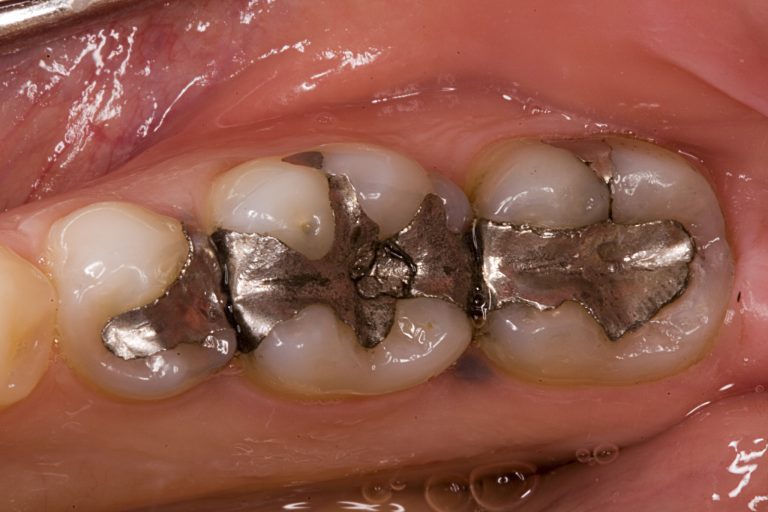Leaky Gut Syndrome And Altered Immunity
The following article is really interesting. Leaky gut syndrome is a disorder where the intestinal lining is more porous then the normal one. All the toxic material reenters into the body and causes all sort of troubles and diseases. Leaky gut syndrome allows all the bacteria, viruses, digested stuff that body want to eliminate to be absorb back into the body. It is almost always related with auto immune diseases like lupus, alopecia areata, rheumatoid arthritis, polymyalgia rheumatica, multiple sclerosis, fibromyalgia, chronic fatigue syndrome, Sjogren’s syndrome, vitiligo, thyroiditis, vasculitis, Crohn’s disease, ulcerative colitis, urticaria (hives), diabetes and Raynaud’s disease. Learn more in the following article:
Altered Immunity & Leaky Gut Syndrome
The leaky gut syndrome is the name given to a very common health disorder in which the basic organic defect (lesion) is an intestinal lining which is more permeable (porous) than normal. The abnormally large spaces present between the cells of the gut wall allow the entry of toxic material into the bloodstream that would, in healthier circumstances, be repelled and eliminated.
The gut becomes leaky in the sense that bacteria, fungi, parasites and their toxins, undigested protein, fat and waste normally not absorbed into the bloodstream in the healthy state, pass through a damaged, hyperpermeable, porous or “leaky” gut. This can be verified by special gut permeability urine tests, microscopic examination of the lining of the intestinal wall as well as the bloodstream with phase contrast or darkfield microscopy of living whole blood.
Why is The Leaky Gut Syndrome Important?
The leaky gut syndrome is almost always associated with autoimmune disease and reversing autoimmune disease depends on healing the lining of the gastrointestinal tract. Any other treatment is just symptom suppression. An autoimmune disease is defined as one in which the immune system makes antibodies against its own tissues. Diseases in this category include lupus, alopecia areata, rheumatoid arthritis, polymyalgia rheumatica, multiple sclerosis, fibromyalgia, chronic fatigue syndrome, Sjogren’s syndrome, vitiligo, thyroiditis, vasculitis, Crohn’s disease, ulcerative colitis, urticaria (hives), diabetes and Raynaud’s disease. Physicians are increasingly recognizing the importance of the gastrointestinal tract in the development of allergic or autoimmune disease. Understanding the leaky gut phenomenon not only helps us see why allergies and autoimmune diseases develop but also helps us with safe and effective therapies to bring the body back into balance.
Due to the enlarged spaces between the cells of the gut wall, larger than usual protein molecules are absorbed before they have a chance to be completely broken down as occurs when the intestinal lining is intact. The immune system starts making antibodies against these larger molecules because it recognizes them as foreign, invading substances. The immune system starts treating them as if they had to be destroyed. Antibodies are made against these proteins derived from previously harmless foods.
Human tissues have antigenic sites very similar to those on foods, bacteria, parasites, candida or fungi. The antibodies created by the leaky gut phenomenon against these antigens can get into various tissues and trigger an inflammatory reaction when the corresponding food is consumed or the microbe is encountered. Autoantibodies are thus created and inflammation becomes chronic. If this inflammation occurs in a joint, autoimmune arthritis (rheumatoid arthritis) develops. If it occurs in the brain, myalgic encephalomyelitis (a.k.a. chronic fatigue syndrome) may be the result. If it occurs in the blood vessels, vasculitis (inflammation of the blood vessels) is the resulting autoimmune problem.
If the antibodies end up attacking the lining of the gut itself, the result may be colitis or Crohn’s disease. If it occurs in the lungs, asthma is triggered on a delayed basis every time the individual consumes the food which triggered the production of the antibodies in the first place. It is easy to see that practically any organ or body tissue can become affected by food allergies created by the leaky gut. Symptoms, especially those seen in conditions such as chronic fatigue syndrome, can be multiple and severely debilitating.
The inflammation that causes the leaky gut syndrome also damages the protective coating of antibodies of the IgA family normally present in a healthy gut. Since IgA helps us ward off infections, with leaky gut problems we become less resistant to viruses, bacteria, parasites and candida. These microbes are then able to invade the bloodstream and colonize almost any body tissue or organ. When this occurs in the gums, periodontal disease results. If it happens in the jaw, tooth extraction or root canals might be necessary to cure the infection.
In addition to the creation of food allergies by the leaky gut, the bloodstream is invaded by bacteria, fungi and parasites that, in the healthy state, would not penetrate the protective barrier of the gut. These microbes and their toxins, if present in large enough amounts, can overwhelm the liver’s ability to detoxify. This results in symptoms such as confusion, memory loss, brain fog or facial swelling when the individual is exposed to a perfume or to cigarette smoke that he or she had no adverse reactions to prior to the development of the leaky gut syndrome.
Leaky gut syndrome also creates a long list of mineral deficiencies because the various carrier proteins present in the gastrointestinal tract that are needed to transport minerals from the intestine to the blood are damaged by the inflammation process. For example, magnesium deficiency (low red blood cell magnesium) is quite a common finding in conditions like fibromyalgia despite a high magnesium intake through the diet and supplementation. If the carrier protein for magnesium is damaged, magnesium deficiency develops as a result of malabsorption. Muscle pain and spasms can occur as a result. Similarly, zinc deficiency due to malabsorption can result in hair loss or baldness as occurs in alopecia areata. Copper deficiency can occur in an identical way leading to high blood cholesterol levels and osteoarthritis. Further, bone problems develop as a result of the malabsorption of calcium, boron, silicon and manganese.
The Causes
The leaky gut syndrome is basically caused by inflammation of the gut lining. This inflammation is usually brought about by the following:
· Antibiotics because they lead to the overgrowth of abnormal flora in the gastrointestinal tract (bacteria, parasites, candida, fungi) · Alcohol and caffeine (strong gut irritants)
· Foods and beverages contaminated by parasites like giardia lamblia, cryptosporidium, blastocystis hominis and others
· Foods and beverages contaminated by bacteria like helicobacter pylori, klebsiella,
· citrobacter, pseudomonas and others
· Chemicals in fermented and processed food (dyes, preservatives, peroxidized fats) · Enzyme deficiencies (e.g. celiac disease, lactase deficiency causing lactose intolerance)
· NSAIDS (non-steroidal anti-inflammatory drugs) like ASA, ibuprofen, indomethacin,
· Prescription corticosteroids (e.g. prednisone)
· High refined carbohydrate diet (e.g. candy bars, cookies, cake, soft drinks, white
· bread) Prescription hormones like the birth control pill Mold and fungal mycotoxins in stored grains, fruit and refined carbohydrates.
The leaky gut syndrome can cause the malabsorption of many important micronutrients. The inflammatory process causes swelling (edema) and the presence of many noxious chemicals all of which can block the absorption of vitamins and essential amino acids. A leaky gut does not absorb nutrients properly. Bloating, gas and cramps occur as do a long list of vitamin and mineral deficiencies. Eventually, systemic complaints like fatigue, headaches, memory loss, poor concentration or irritability develop.
Prescription broad spectrum antibiotics, especially when taken for extended periods of time, wipe out all the gut friendly bacteria that provide protection against fungi and amoebic (parasitic) infections, help the body break down complex foods and synthesize vitamins like B12 and biotin. Since this friendly bowel flora is killed off, the body now has no local defence against the parasites or fungi that are normally held in check. This then causes an inflammatory reaction leading to the leaky gut syndrome. Food allergies quickly develop and these may trigger the signs and symptoms of arthritis, eczema, migraines, asthma or other forms of immune dysfunction. Other common symptoms of this bowel flora imbalance and leaky gut syndrome are bloating and gas after meals and alternating constipation with diarrhea. This set of symptoms is usually labelled as IBS (irritable bowel syndrome) or spastic bowel disease and treated symptomatically by general practitioners and gastroenterologists with antispasmodic drugs, tranquilizers or different types of soluble (psyllium) and insoluble (bran) fiber.
The Leaky Gut and IBS
The mainstream thinking on IBS is that it is caused by stress. Irritable bowel syndrome is the number one reason for general practitioner referrals to specialists. In well over 80% of the cases, tests like the intestinal permeability test (a special urine test involving the determination of absorption rates of two sugars called lactulose and mannitol), CDSA or livecell darkfield microscopy reveal the presence of an overgrowth of fungi, parasites or pathogenic bacteria. The one-celled parasite, blastocystis hominis and different species of candida are the most common microbes seen in IBS. The only stress associated with IBS is that which is generated by infection and the leaky gut syndrome. If allowed to persist without the correct treatment, IBS can progress into more serious disorders like the candidiasis syndrome, multiple chemical sensitivities, chronic fatigue syndrome, many autoimmune diseases and even cancer. If treated medically, IBS is rarely cured. To treat it correctly, natural treatments work best and must include the removal of the cause, improvement of gastrointestinal function and healing the lining of the gut.
How to Reverse Leaky Gut Syndrome
Band-aid treatments with corticosteroids, prescription antibiotics and immuno suppressive drugs may be temporarily life-saving for acute episodes of pain, bleeding or severe inflammation as occurs in lupus or colitis. In the long run, however, none of these treatments do anything to heal the leaky gut problem. To reverse the leaky gut syndrome the diet must be completely changed to one which is as hypoallergenic as possible. Sugar, white flour products, all gluten-containing grains (especially wheat, barley, oats and rye), milk and dairy products, high fat foods, caffeine products, alcohol and hidden food allergies determined by testing must all be eliminated for long periods of time (several years in the most severe cases).
Treatment might also include the use of natural antibiotics (echinacea, colloidal silver, garlic), antiparasitics (cloves, wormwood, black walnut) and antifungals (taheebo, caprylic acid, grapefruit seed extract) depending on the type of infection which shows up on objective tests. It is rare that victims require prescription drugs for these infections and they should be discouraged. The drugs are usually expensive, have unpleasant side effects and are best reserved for life-threatening conditions.
Leaky gut syndrome patients can help themselves by chewing their food more thoroughly, following the basic rules of food combining, eating frequent small meals rather than three large ones and taking more time with their meals. Gastrointestinal function can be improved with a juice fast or a hypoallergenic diet and supplements like lactobacillus acidophilus and bifidus as well as FOS (fructooligosaccharides) derived from Jerusalem artichoke, chicory, the dahlia plant or burdock root.
Beneficial Supplements for Leaky Gut Syndrome
Natural digestive enzymes – from plant (e,g, bromelain, papain) or pancreatic animal tissues (porcine, bovine, lamb) and aloe vera juice with a high MPS concentration (good brands are International Aloe, Earthnet and Royal) stomach acidity enhancing supplements – betaine and pepsin, glutamic acid, stomach bitters, apple cider vinegar amino acids – L-glutamine, N-acetyl-glucosamine (NAG) essential fatty acids – milled flax, flax seed oil, evening primrose oil, borage oil, olive oil, fish oils, black currant seed oil soluble fiber – psyllium seed husks and powder, apple or citrus pectin, the rice derived gamma oryzanol, antioxidants – carotenoids, B complex, vitamin C, E, zinc, selenium, germanium, Coenzyme Q10, bioflavonoids, especially quercetin, catechin, hesperidin, rutin and proanthocyanidins (pycnogenols, grape seed extract, pine bark extract, bilberry) herbs and plant extracts – kudzu, various high chlorophyll containing green drinks like spirulina, chlorella and blue green algae, burdock, slippery elm, Turkish rhubarb, sheep sorrel, licorice root, ginger root, goldenseal, bismuth and bentonite. Combination Green Foods – two excellent products are Green Life (Bioquest) and Greens Plus (Supplements Plus)
Due to the increasing recognition of chronic fatigue syndrome, the leaky gut syndrome and multiple chemical sensitivity, a number of supplement companies have been marketing powdered hypoallergenic formulations containing most of the nutrients mentioned above in one convenient package. Some brand names include Ultrabalance®, UltraClear Sustain®, UltraClear Plus®, Pro-Cleanse®, Pro-Support® and ActiClear®. The products are only available through natural health care practitioners like chiropractors, nutritional doctors and naturopaths. If you suspect you may be suffering from leaky gut syndrome, the most important thing to do is get yourself tested by a natural health care practitioner. A personalized natural program of diet and supplements can then be instituted to help you reverse this debilitating condition.
by Zoltan P. Rona MD, MSc
REFERENCES
1. Gittleman, A.L., Guess What came to Dinner – Parasites and your health, Garden City Park,New York: Avery, 1993.
2. Gottschall, Elaine. Breaking The Vicious Cycle. Intestinal Health Through Diet. Kirkton, Ont.:The Kirkton Press, 1994.
3. Martin, Jeanne Marie and Rona, Zoltan P. The Complete Candida Yeast Guidebook. Rocklin, California:Prima Books, 1996.
4. Robert L, et al. The effect of procyanidolic oligomers on vascular permeability. A study using quantitative morphology. Pathol Biol 38:608-616; 1990.
5. Rogers, Sherry, MD Finally Healing the Immune System. Macrobiotics Today. September/October 1995; pp. 16-20.
6. Rona, Zoltan P. Childhood Illness and The Allergy Connection. Rocklin, California:Prima Books, 1996.
7. Castro GA, Arntzen CJ. Immunophysiology of the gut: a research frontier for integrative studies of the common mucosal immune system. Am J Physiol; 265 (Gastroinest Liver Physiol. 28):G599-610,
8. Castro GA Immunophysiology of Enteric Parasiticism. Parisitology Today 1989;5- 1: 11-19.
9. Zhang ZJ et al. Supression of diabetes in nonobese diabetic mice by oral administration of procine insulin. Proc Nat Acad Sci USA 1991;88:10252-6
10. Weiner HL, Mackin GA, Matsui M, et al. Double-blind trial of oral tolerization with myelin antigens in multiple sclerosis. Science 1993;259:132-4
11. Ciprandi G et al. Pharmacological treatment of Adverse Reactions to Foods: A comparison of different protocols. Ann Allergy. 1987:58:341.
12. Howard PJ, heading RC. Epidemiology of gastro-esophageal reflux disease. World J Surg
13. Walker-Smith J.A., Ford P.K., Phillips A.D. The Spectrum of Gastrointestinal Allergies To Food. Ann Allergy 1984;53:629-636
14. Saavedra-Delagado A.M., Metcalfe D.D. Interactions Between Food Antigens and the Immune System in the Pathogenesis of Gastrointestinal Diseases. Ann Allergy 1985;55:694-700.
15. Ciprandi G., Canonica,G.W. Incidence of digestive diseases in patients with adverse reactions to foods. Annals of Allergy 1988;61:334-336.
16. MacDonald T.T., Spencer J. Evidence that Activated Mucosal T Cells Play a Role in the Pathogenesis of Enteropathy in Human Small Intestine J.Exp. Med. 1988;167:1341-1349
17. Jenkins HR, Pincott JR, Soothill JF, Milla PJ, Harries JT. Food allergy: the major cause of infantile colitis. Arch Dis. Chil. 1984;59:326-329
18. Moon A, Kleinman RE. Allergic gastroenteropathy in children. Ann Allergy 1995;74:5-15
19. Hill Sm, Milla PJ. Colitis caused by food allergy in infants. Arch Disease in Childhood.1990; 65:132-140
20. Hill Sm, Phillips AD, Mearns M, Walker-Smith JA. Cow’s milk sensitive enteropathy in cystic fibrosis. Arch Disease in Childhood. 1989;64:1251-1255
21. Lothe L, Lindberg T. Jakobsson I. Cows milk formula as a cause of infantile colic: A double-blind crossover study. Pediatrics 1983;71:268-271
22. Harmatz PR, Bloch KJ. Transfer of dietary protein in breast milk. Ann Allergy 1988:61-2:21-24 23. Jacobsson I, Lindberg T. Cow’s milk proteins cause infantile colic in breast-fed infants: a double-blind crossover study. Pediatric 1983;71:286
24. Lynn RB, Friedman LS. Irritable Bowel Syndrome. N. ENG. J Med 1993;329:1940-5
25. Brostroff J. Irritable Bowel Syndrome. N Engl J Med 1994; May 12:1390
26. Jones A.V., McLaughlin P. Shorthouse M. et al. Food intolerance: a major factor in the pathogenesis of irritable bowel syndrome. Lancet 1982;2:1115
27. Jones Al, Shorthouse M., Workman E. et al. Food intolerance and irritable bowel. Lancet
28. Nanda R. et al: Food Intolerance and the irritable bowel syndrome. Gut 1989;30:1099-104.
29. Pagnelii R. et al Intestinal Permeability in irritable bowel syndrome… Annals of Allergy 64; 377-380
30. Iacono G. Et al Chronic Constipation as a Symptom of Cow milk Allergy. Jour Pediatrics
31. Gardner MLG. Evidence for, and Implications of, Passage of Intact Peptides Across the Intestinal Mucosa. 1983 Biochem. Soc Trans 11; 813.
32. Reinhardt M.C. Macromolecular Absorption of Food Antigens in Health and Disease. 1984 Ann Allergy.53.597-601.
33. McNeish, A.S.Enzymatic Maturation of the Gastrointestinal Tract and its Relevance to Food Allergy and Intolerance in Infancy. 1984 Ann Allergy 53: 643.
34. Bienstock J. Mucosal barrier functions. 1984 Nutr reviews 42:3 105-116.
35. Coombs RRA, McLaughlan P. Ann Allergy 1984;53:592.
36. Yates VM, Watikinson G, Kelman A. Further evidence for an association between psoriasis, Crohn’s disease and ulcerative colitis. Br. J Dermat 1982;106:323-330
37. Gardner ML Absorption of intact proteins and peptides. Biol Rev 1984;59:289-331
38. Gardner M.L. Gastrintestinal Absorption of Intact Proteins 1988 Ann Rev. Nutrition 8:329
39. Walker W.A. Pathophysiology of intestinal uptake and absorption of antigens in food allergy. Ann Allergy 1987:59,II:7-16
40. Kleiman RE, Bloch KJ, Wlaker WA: Gut induced anaphylaxis and update of a bystander protein: an amplification of anaphylactic sensitivity. Pediatr Res 1981:15:598
41. Schrander JP, Dellevoet MD, Arends JW, et al. Small Intestinal muscosa IgE plasma cells and specific anti-cow milk IgE in children with cow milk protein intolerance. Ann Allergy 1993; 70:404
42. Castro GA, Powell D.W. The Physiology of the Mucosal Immune System and the
43. Immune-Mediated Responses in the Gastrointestinal Tract. Physiology of the Gastrointestinal Tract . Ed. Johnson R. 1994: 709-750 Raven Press NY.
44. Van Der Meer, S.B., et al. Small Bowel Permeability to Cr-EDTA in Children With Recurrent Abdominal Pain. ACTA Pediatr. Scand., 1990;422-426.
45. Bjarnson I, Williams P, So A. et al Intestinal Permeability and inflammation in patients with Rheumatoid Arthritis; effects of non-steroidal anti-inflammatory drugs. Lancet 1984;ii:711-4
46. Bjarnson I, Zanelli G, Smith T et al. Non-steroidal anti-inflammatory drugs induced inflammation in humans. Gastroenterology 1987;93:480-9
47. Draper LR, Gyure LA, Hall JG, Robertson D. Effect of alcohol on the integrity of the intestinal epithelium. Gut 1983;24:399-404
48. Bjarnson I, Ward K, Peters TJ. The leaky gut of alcoholism. Possible route for entry of toxic compounds. Lancet 1984;:179-82
49. Peters TJ, Bjarnson I. Uses and abuses of intestinal permeability measurements. Can J Gatroenterol
50. Unsworth DJ, et al IgA anti-gliadin antibodies in Celiac disease. Clin Exp Immunol. 1981:
51. Keiffer M, et al Wheat gliadin fractions and other cereal antigens reactive with antibodies in the sera of celiac patients. Clin Exp Immunol. 1982;50:651-60
52. Kelly CP Case records of the Mass General Hosp 30-1994 NEJM 1994;331-6:383-9.
53. Ci*censored*ira PJ, et al Secretion of gliadin antibody by coeliac jejumal mucosal biopies cultured in vitro. Clin exp. Immunol.1986;64:119-24
54. O’Farrelly C. et al alpha-Gliadin antibody levels: a serological test for coeliac disease. Br. med Jour
55. Bjarnson I, Peters TJ A Persistent Defect in Intestinal permeability in Co on the integrity of the intestinal epithelium. Gut 1983;24:399-404
56. Bjarnson I, Ward K, Peters TJ. The leaky gut of alcoholism. Possible route for entry of toxic compounds. Lancet 1984;:179-82
57. Peters TJ, Bjarnson I. Uses and abuses of intestinal permeability measurements. Can J Gatroenterol
58. Unsworth DJ, et al IgA anti-gliadin antibodies in Celiac disease. Clin Exp Immunol. 1981:
59. Keiffer M, et al Wheat gliadin fractions and other cereal antigens reactive with antibodies in the sera of celiac patients. Clin Exp Immunol. 1982;50:651-60
60. Ci*censored*ira PJ, et al Secretion of gliadin antibody by coeliac jejumal mucosal biopies cultured in vitro. Clin exp. Immunol.1986;64:119-24
61. O’Farrelly C. et al alpha-Gliadin antibody levels: a serological test for coeliac disease. Br. med Jour
62. Bjarnson I, Peters TJ A Persistent Defect in Intestinal permeability in Coeliac Disease demonstrated by a 51Cr EDTA absorption test. Lancet Feb 12 1983:323-325
63. Mulder CJJ, Tygat GNJ. Celiac disease and related disorders. Netherlands Jour Med
64. Homes GKT, Prior P, Lane MR, Pope D, Allan RN. Malignancy in celiac disease -effect of a gluten-free diet. Gut 1989;30:333-8.
65. Braegger C.P., MacDonald T.T. Immune mechanisms in chronic inflammatory bowel disease. Ann Allergy 1994;72:135-141
66. Voigt AJ, Echave V, Feller JH, et al. Experience with elemental diet in the treatment of inflammatory bowel disease. Is this primary therapy? Arch Surg 1973;107:329-33
67. Rocchio MA et al Use of Chemically Defined diets in the Management of Patients With Acute Inflammatory Bowel Disease. Am Jour Surg.1974;127:469-475
68. O’Morain C, Segal AW, Levi AJ et al Elemental diet as a primary treatment of acute Crohn’s Disease; a controlled trial. Br. Med J 1984:288:1859-62
69. Morin Cl et al Continuous elemental enteral alimentation in the treatment of children and adolescents with Crohn’s disease. J Parent Nutr 1982;6:194-199
70. Saverymuttu S, Hodgson HJF, Chadwick VS. Controlled trial comparing prednisolone with an antibiotic in active Crohn’s disease. Gut 1984:26:994-998
71. Teahon K., Bjarnason I., Pearson A.J., Levi A.J. Ten years experience with an elemental diet in the management of Crohn’s disease. Gut,1990,31;1133-1137
72. Frieri et al. Preliminary investigation on humoral and cellular immune responses to selected food proteins in patients with Crohn’s
73. Knicker W. Non-IgE Mediated and Delayed Adverse reactions to Food or Additives. Handbook on Food Allergies, Ed Breneman J.C.; Marcel Dekker Inc. N.Y. 1985.
74. Rowe, A.J. Allergic toxemia and migraine due to food allergy. Calif West Med, 33:785,1930.
75. Randolph T.G. Allergy as a Causative factor in fatigue, irritability, and behavior problems in children. Pediat, 31:560,1947.
76. Speer, F. The allergic-tension-fatigue syndrome. Pediat Clin N. Amer, 1:1019,1954.
77. The allergic-tension-fatigue syndrome: Allergy of the Nervous System. Charles C. Thomas Pub.
78. Landay AL., Jessop C., Lennette ET., Levy JA. Chronic fatigue syndorme: clinical condition associated with immune activation. Lancet;338(1991): 707-711.
79. Gupta,S. Vayuegula, B. A Comprehensive Immunological Analysis in Chronic Fatigue Syndrome. Scand J. Immunol 33,319-327 1991.
80. Strauss S.E., Dale J.K., Wright RN, Metcalfe D.; Allergy and the chronic fatigue syndrome. J. Allergy Clin Immunol;81:5,1; 791-795;1988.
81. Strauss S. History of the Chronic Fatigue Syndrome Reviews of Inf. Disease 13: sup 1; Jan-Feb ’91 Bak P., Kan C., Self-Organized Criticality. Sc American Jan ’91;46-53.





